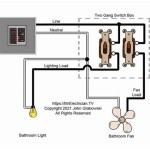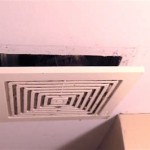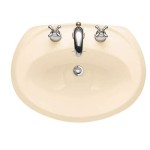How Often Do You Renovate Your Bathroom?
Renovating a bathroom is a significant investment, both financially and in terms of disruption to daily life. Understanding the typical lifespan of bathroom components and recognizing the signs that a renovation is necessary can help homeowners make informed decisions about when to undertake this project. There is no single answer to how often a bathroom *should* be renovated, as various factors influence the ideal timeline.
Key Factors Influencing Bathroom Renovation Frequency
Several factors contribute to the decision of when to renovate a bathroom. These include:
- Age of the Bathroom: Older bathrooms are more likely to require updates due to wear and tear, outdated fixtures, and potential plumbing or electrical issues.
- Quality of Materials: High-quality materials and fixtures tend to last longer, delaying the need for renovation. Conversely, lower-quality materials may necessitate more frequent replacements and updates.
- Usage and Maintenance: A frequently used bathroom, particularly in a large household, will experience more wear and tear than a guest bathroom. Regular cleaning and maintenance can extend the lifespan of fixtures and surfaces.
- Personal Preferences and Style: Homeowners may choose to renovate to update the aesthetic of their bathroom, even if the fixtures are still functional. Changing design trends and personal style preferences can influence the decision to renovate.
- Resale Value: A well-maintained and updated bathroom can significantly increase the resale value of a home. Homeowners looking to sell may choose to renovate to attract potential buyers.
Typical Lifespan of Bathroom Components
Understanding the expected lifespan of common bathroom components can help homeowners anticipate when replacements or updates might be needed. These lifespans are estimates and can vary depending on the quality of the materials and the level of maintenance.
- Toilet: 10-15 years
- Sink: 15-20 years
- Bathtub/Shower: 20-30 years
- Flooring: 10-20 years (depending on the material)
- Tiles: 20-30 years (or longer with proper maintenance)
- Plumbing: 50+ years (though individual components like faucets and valves may need replacing sooner)
- Ventilation Fan: 10-15 years
Signs Your Bathroom Needs a Renovation
Beyond the age of the bathroom, several signs indicate the need for a renovation. These include:
- Leaking Fixtures: Consistent leaks can indicate failing plumbing and can lead to water damage if not addressed.
- Mold and Mildew: Persistent mold and mildew growth can be a sign of inadequate ventilation or water damage, requiring remediation and potential renovation.
- Cracked or Damaged Tiles and Grout: Damaged tiles and grout can be unsightly and can also harbor mold and mildew.
- Outdated Fixtures: Old, inefficient fixtures can increase water and energy bills. Updating to newer, more efficient models can save money in the long run.
- Poor Functionality: A bathroom that no longer meets the needs of the household, such as insufficient storage or accessibility issues, may require renovation.
Cosmetic vs. Functional Renovations
Bathroom renovations can be categorized as cosmetic or functional. Cosmetic renovations focus on updating the appearance of the bathroom, while functional renovations address underlying issues and improve the usability of the space.
- Cosmetic Renovations: These may include repainting, updating light fixtures, replacing the vanity, or installing new flooring. Cosmetic renovations are often less expensive and time-consuming than functional renovations.
- Functional Renovations: These typically involve replacing plumbing fixtures, addressing water damage, improving ventilation, or making accessibility modifications. Functional renovations are essential for maintaining the safety and integrity of the bathroom.
Planning Your Bathroom Renovation
Careful planning is crucial for a successful bathroom renovation. Consider the following:
- Budget: Determine a realistic budget before starting the project and stick to it as much as possible.
- Timeline: Establish a reasonable timeline for the renovation, taking into account potential delays.
- Design: Choose a design that meets the needs and preferences of the household.
- Contractor: If hiring a contractor, research and select a reputable professional with experience in bathroom renovations.
Maintaining Your Renovated Bathroom
Proper maintenance can significantly extend the lifespan of your newly renovated bathroom.
- Regular Cleaning: Clean the bathroom regularly to prevent the buildup of grime, mold, and mildew.
- Prompt Repairs: Address any leaks or damage promptly to prevent further issues.
- Proper Ventilation: Ensure adequate ventilation to prevent moisture buildup.
By understanding the various factors influencing bathroom renovation frequency, homeowners can make informed decisions that align with their budget, lifestyle, and the needs of their home.

How Often Should You Renovate Your Bathroom Daniel S Development Group Inc

How Often Should You Renovate Your Bathroom Rwc

How Often Should You Remodel Or Update Bathroom Firea Stone

How Often Should You Renovate Your Bathroom

How Often Should You Update Your Bathroom Big

How Frequently Should You Renovate Your Bathroom

How Often Should You Renovate Your Bathroom Find The Optimal Frequency

How Often Should You Remodel Your Bathroom

How Often Should You Renovate Your Bathroom Find The Optimal Frequency

How Often Should Your Bathroom Be Renovated
Related Posts







